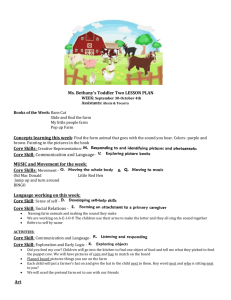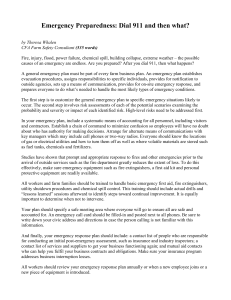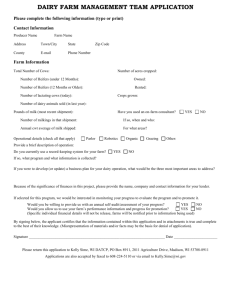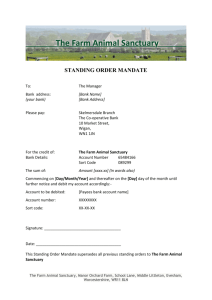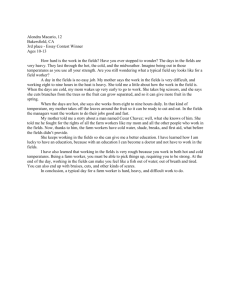Art POland in EN pe euproject
advertisement
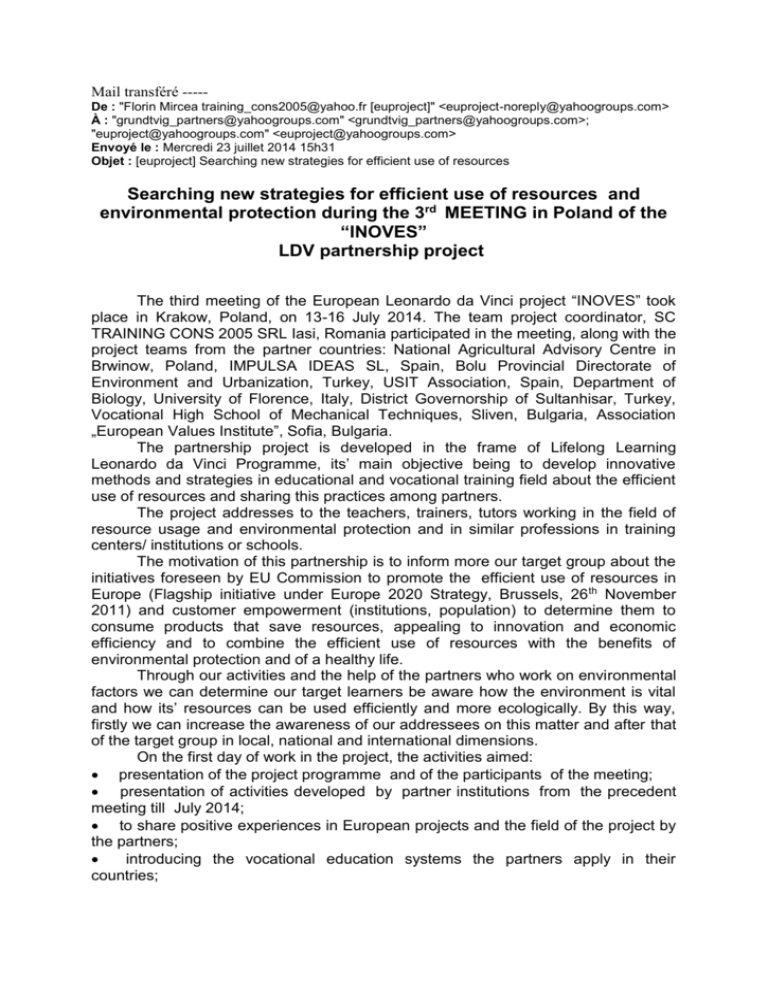
Mail transféré ----De : "Florin Mircea training_cons2005@yahoo.fr [euproject]" <euproject-noreply@yahoogroups.com> À : "grundtvig_partners@yahoogroups.com" <grundtvig_partners@yahoogroups.com>; "euproject@yahoogroups.com" <euproject@yahoogroups.com> Envoyé le : Mercredi 23 juillet 2014 15h31 Objet : [euproject] Searching new strategies for efficient use of resources Searching new strategies for efficient use of resources and environmental protection during the 3rd MEETING in Poland of the “INOVES” LDV partnership project The third meeting of the European Leonardo da Vinci project “INOVES” took place in Krakow, Poland, on 13-16 July 2014. The team project coordinator, SC TRAINING CONS 2005 SRL Iasi, Romania participated in the meeting, along with the project teams from the partner countries: National Agricultural Advisory Centre in Brwinow, Poland, IMPULSA IDEAS SL, Spain, Bolu Provincial Directorate of Environment and Urbanization, Turkey, USIT Association, Spain, Department of Biology, University of Florence, Italy, District Governorship of Sultanhisar, Turkey, Vocational High School of Mechanical Techniques, Sliven, Bulgaria, Association „European Values Institute”, Sofia, Bulgaria. The partnership project is developed in the frame of Lifelong Learning Leonardo da Vinci Programme, its’ main objective being to develop innovative methods and strategies in educational and vocational training field about the efficient use of resources and sharing this practices among partners. The project addresses to the teachers, trainers, tutors working in the field of resource usage and environmental protection and in similar professions in training centers/ institutions or schools. The motivation of this partnership is to inform more our target group about the initiatives foreseen by EU Commission to promote the efficient use of resources in Europe (Flagship initiative under Europe 2020 Strategy, Brussels, 26 th November 2011) and customer empowerment (institutions, population) to determine them to consume products that save resources, appealing to innovation and economic efficiency and to combine the efficient use of resources with the benefits of environmental protection and of a healthy life. Through our activities and the help of the partners who work on environmental factors we can determine our target learners be aware how the environment is vital and how its’ resources can be used efficiently and more ecologically. By this way, firstly we can increase the awareness of our addressees on this matter and after that of the target group in local, national and international dimensions. On the first day of work in the project, the activities aimed: presentation of the project programme and of the participants of the meeting; presentation of activities developed by partner institutions from the precedent meeting till July 2014; to share positive experiences in European projects and the field of the project by the partners; introducing the vocational education systems the partners apply in their countries; reports on/ about intermediary evaluation of the project and the dissemination made by partner institutions. After finishing the discussions for the 1st day of the project, all partners participated to a Guide tour of Krakow. On the second day of work in the project, the activities aimed: to present the stage of INOVES project by the coordinating institution (objectives and outcomes, tasks, deadlines); to establish the following steps to accomplish the project, the immediate tasks and to set deadlines for partners involved. Also, on the second day we filled in the evaluation questionnaire and we distributed the certificates for every participant at the meeting. But an important moment of the second meeting day was the technical visit organized by Polish partner to an ecological farm from Iwanowice. Ecological and education farm “Janówka”, farm managed by Jan Pajdzik. Mr. Jan started small ecological plant and animal production in 1999. His farm is almost 5 hectares wide. Now, he is certificated as ecological producer. The farm includes fruit trees: plums and apples, some type of berries and vegetables. Animal production includes poultry breeding and dairy cattle. Mr Jan is a participant of the education farms network. He hosts groups of pupils and students from schools in his farm. This farm represents a balance in farming and proves that small farming is able to be efficient. Here, in the first part of the visit, we saw ecological methods used in organic farming and for organic plant protection. The most important part of ecological methods organic farming is biodiversity of insects and how to prepare insecticides made/used for plants; special plants which have influence on insects. It’s important also to protect birds, because birds are natural predators for small animals like mice. Mister Jan Pajdzik explains to visitors/to us the mechanical ways to destroying herbs. In the second part of the visit, we saw animals’ husbandry. He has only free caws, daisy “cutlets” which live very long. They don’t eat any artificial products in their food. In the same way, they keep poultry. He has many species of apples, strawberries, cherries. Another planned visit in our programme was to The National Research Institute of Animal Production in Kraków-Balice. The National Research Institute of Animal Production in Kraków-Balice, founded in 1950, is the largest institute in the agricultural sector serving the whole country. The Institute is engaged in research and development work, which comprises the breeding of all species of farm animals and the entirety of animal production issues. This activity is directed at the current and future needs of production of safe food under animal and environmentally friendly conditions as well as the use of farm animals for biomedical purposes. The Institute’s research programme covers 6 areas, which are regarded as strategic for the changing needs of animal production: Genetics and breeding of farm animals; Development of the methods for biotechnology of reproduction of male and female farm animals; In situ and ex situ conservation of farm animal genetic resources; Animal cytogenetic and molecular genetics; Animal nutrition and feed science; Technology, ecology and economics of animal production. Finally, all partners agreed that the meeting in Krakow, Poland has constituted a real important progress in the development of our project because it permitted a better knowledge of the partners, sharing of good practice among partners (we must remark here the good practices shared to us by our partners from Bolu and Sultanhisar, Turkey, or those from Sliven, Bulgaria). Special emphasis was placed - during the meeting - on the practical knowledge of specific innovative strategies for the protection of the environment and resource efficient use by the host country (and this thing was accomplished by the technical visits organized by our Polish partner), but also on clarifying and understanding the steps to be followed for each partner to succeed better realization of tasks in the project and the achievement of the initial objectives. Moreover, in the final assessment of the meeting, participants were asked to make feedback on the meeting just to improve things along the way and to achieve a final larger impact. The city of Krakow, where the meeting was held, it is an important cultural centre of Poland, with many museums, churches, monuments, universities, libraries. The visits in the historical city centre, to the Wawel Castle, to the University Jagellonia, to Saint Peter /St Paul church,to Saint Mary church- helped the guests to discover the culture and history of Polish people. Tasting the traditional Polish dishes in a beautiful restaurant of the region, we have completed the project meeting in Poland with beautiful moments and impressions. Author: PhD Elena ANGHEL, S.C. Training Cons 2005 S.R.L, Iasi, Romania __._,_.___ Posted by: <training_cons2005@yahoo.fr>

